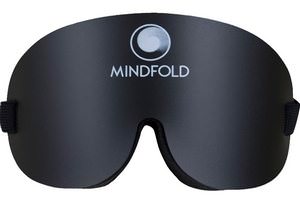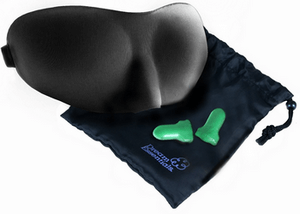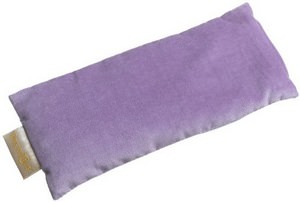Top 5 Sleep Masks for Lucid Dreaming and Meditation
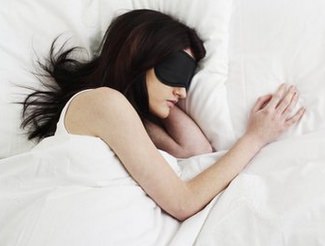
A sleep mask is a useful lucid dreaming aid. In fact, it can improve your sleep and dreams on several levels:
-
Balance Circadian Rhythms
If you have trouble winding down to sleep, or still feel tired even after a good night's rest, it may be because artificial light sources are interfering with your body's natural Circadian rhythms.
Whether you're subjected to street lights creeping in around the curtains, standby lighting from electronic devices in the bedroom, or continuous light streaming from your LED alarm clock. Sleep masks block out all these sources of light, telling the photosensitive receptor cells in your eyes that sleep is due.
Your brain reacts by converting serotonin (the chemical of wakefulness) into melatonin (the chemical of sleep) so you can enter deep sleep faster. This is necessary before you can embark on lengthier periods of REM (dream) sleep. You may also find you wake feeling more refreshed having slept in a sleep mask all night.
-
Increase Dream Recall
Many dream enthusiasts believe that stimulation of the optic nerve on awakening causes chemical changes in the brain which lead to immediate loss of dream memories.
Therefore, if you awaken wearing a sleep mask, your primary focus will remain on recalling your dreams without chemical signals battling to overwrite them.
As you already know, good dream recall is essential for lucid dreaming, so any simple strategy like this to create an improvement in dream memory is well worth taking into consideration.
-
Trigger Lucidity via False Awakenings
Lucid dreamers typically experience more false awakenings (dreams of waking up) than the average person. These are ideal opportunities to perform reality checks and become lucid.
One way to do this is to check if you are wearing a sleep mask when you wake up. Uncannily, many false awakenings forget to add this little detail and so the very fact that you can see while wearing your sleep mask will be your lucidity trigger.
Conversely, if you do awaken wearing your mask, connect the act of removing it to a reality check to be doubly sure. It's little habits like this that can trigger a great number of lucid dreams on autopilot.
-
Practice Meditation During Daylight
Sleep masks are also invaluable for performing quality meditation and, indeed, Wake Induced Lucid Dreams (WILDs) while it's still light out.
The reason here is intuitive: by eliminating any visual stimulation, your awareness is more easily focused inwardly, speeding up your entry to that dreamy realm of meditation.
What's more, as the best time of day to attempt a WILD is usually 5-7am (for most people). At most times of year the sun has already risen by this hour, so the darkness created by your sleep mask will help ease you back to sleep and eliminate daylight distractions.
Once you've decided you want to incorporate a sleep mask into your lucidity practice, the next question is: what is the best sleep mask?
Here are my top 5 sleep masks for lucid dreaming, meditation and better quality of sleep.
1. Dream Essentials Escape: Luxury Sleep Mask
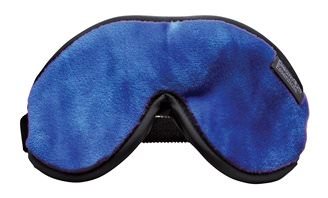 My favorite mask is the
Dream Essentials Escape Luxury Sleep Mask.
My favorite mask is the
Dream Essentials Escape Luxury Sleep Mask.
It's affordable and very comfortable, with interior eye chambers so the fabric never touches your eyes or eyelashes. The padding around the edges ensures no light enters the mask so it does exactly what a lucid dreamer requires of it.
The headband is adjustable using VelcroStretch so for the majority of people this sleep mask will be 100% light blocking.
Sufficiently weighty but not cumbersome it stays in place all night and is ideal for side, front or back sleepers. I've reviewed a number of sleep masks over the years and this one continues to come out on top.
Read more customer reviews at Amazon
2. Mindfold Sleep and Relaxation Eye Mask
The Mindfold Sleep and Relaxation Eye Mask is an alternative sleep mask which I mention here because it is both cheaper and lighter.
Once again, it has the essential deep eye cavities, plus a flexible faceplate backed with soft foam padding for maximum light blocking.
The VelcroStretch headband adjusts for comfort and further improves light blocking. However, unlike the Dream Essentials Escape Mask, this mask is really suited to back sleepers only.
Read more customer reviews at Amazon
3. Dream Essentials Sweet Dreams Contoured Sleep Mask
Even easier on the wallet, the Dream Essentials Sweet Dreams Contoured Sleep Mask is compact and slimline. I use it as a travel mask on planes because it crumples without permanently creasing and is easily washable and quick drying.
It does contour away from the eyes - however, due to the lack of padding, it is only about 95% light blocking. I believe this comes down to the individual; if you have a delicate nose bridge this may just be perfect for you.
For the budget-conscious, the Sweet Dreams Contoured Sleep Mask also comes with free foam earplugs. It is currently the #1 sleep mask on Amazon with 2,000+ reviews.
Read more customer reviews at Amazon
4. Glo to Sleep Eye Mask
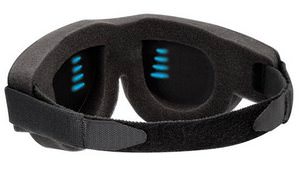 Here's an interesting one. The
Glo to Sleep Eye Mask
is a sleep therapy mask to help you switch off your mind and relax
your body. There are times (we've all been there) when your mind is
buzzing and you can't relax - when this happens, Glo to Sleep is a
natural and effective way to enter the land of nod peacefully.
Here's an interesting one. The
Glo to Sleep Eye Mask
is a sleep therapy mask to help you switch off your mind and relax
your body. There are times (we've all been there) when your mind is
buzzing and you can't relax - when this happens, Glo to Sleep is a
natural and effective way to enter the land of nod peacefully.
While wearing the mask, slowly raise your eyes upwards and hold your gaze on one of the soft points of blue light. Breathe deeply. Your thoughts begin to slow as you relax from a Beta state to an Alpha state. This gentle meditation provides a calm focus as you doze off and relax fully. It can also support lucid dream affirmations (such as "The next scene will be a dream").
There are no batteries required. The Glo to Sleep mask is powered by holding it up to a light bulb for 30 seconds; the blue glow lasts for plenty of time for you to fall asleep. This one has mixed reviews on Amazon but personally I find it a welcome distraction.
Read more customer reviews at Amazon
5. DreamTime Inner Peace Eye Pillow
Who ever heard of a pillow for your eyes?
I thought this was a pretty weird concept until I tried out the DreamTime Inner Peace Eye Pillow. Turns out, it's quite a nice feeling.
How does this work? The creators will tell you that it's down to the aromatherapy scents of flax, lavender, chamomile and orange granules, combined with acupressure applied to tired eyes and facial muscles.
I do enjoy the cool pressure applied to my eyes - it's both relaxing and an excellent focal point for meditation. You'll have to feel this to believe it.
Read more customer reviews at Amazon

